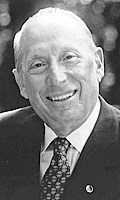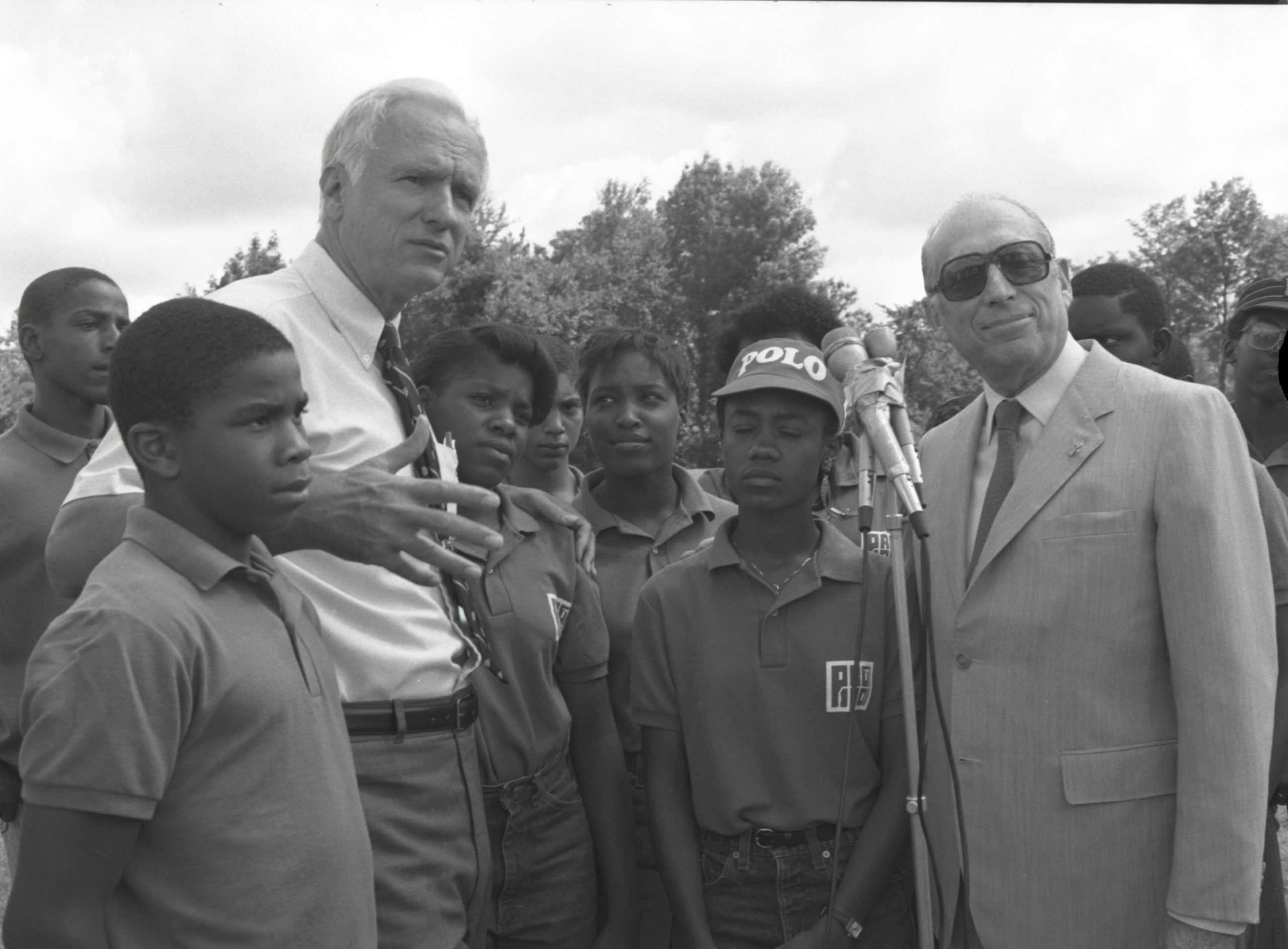
Photo info ...
Credit: IndyStarView Source
(Aug. 29, 1921-Oct. 2, 2013). Real estate developer, entrepreneur, and philanthropist, Eugene B. Glick grew up in a Jewish family in Indianapolis during the Great Depression. He attended and graduated from in 1939.
Glick attended Indiana University, where he studied business and started honing his entrepreneurial skills. After graduation in 1942, he enlisted in the U.S. Army and was deployed overseas. During World War II, Glick served as an infantry combat instructor and interrogator, fought in the historic Battle of the Bulge, and helped to liberate the Dachau concentration camp. Glick received every European Theater ribbon awarded and was decorated with the Bronze Star and Combat Infantryman’s Badge.
Glick’s World War II experiences fundamentally shaped him as a man and became the foundation for his life’s work. Once the war ended, Glick returned home to Indianapolis and went to work in the mortgage loan business. He quickly developed an interest in construction and sought to help his fellow GIs achieve the American dream of homeownership. Glick also began courting (nee Koffman) during this time. The two wed in January 1947.
That same year, the Glicks started a family housing business together called Indianapolis Homes, Inc., and they began building single-family homes. In the early 1960s, the company changed its name to the Gene B. Glick Company.
At the time, the Glick Company was the largest single-family homebuilder in Indiana and was known for its integrity, high-quality construction, and excellent service. The Glick Company built its first apartment community in 1962, and by the mid-1970s, the company was exclusively in the multifamily housing business.

As the company flourished, Glick started turning his focus to philanthropy. In the early 1980s, he and Marilyn established the Glick Family Foundation, the first of several charitable initiatives, programs, and organizations, which would later become known as Glick Philanthropies. One of Glick’s favorite philanthropic projects was the Pro-100 mentoring program, administered by the . Created in 1981, Pro-100 offered paid summer internships for disadvantaged youth. The program continues independently as TeenWorks.
In 1998, Glick was featured in Tom Brokaw’s bestselling book, , calling him “a very, very successful builder in Indiana.” In the 2000s, Glick started turning over daily operations of the company to the next generation. He retired in 2008 and died five years later.
The Glick Company remains a family-run business and is one of the largest privately-held real estate ownership, development, and management firms in the country. Glick Philanthropies continues Glick’s philanthropic legacy–one of the most significant in Indiana–with more than $215 million to date awarded to charitable causes. Glick Philanthropies include the Glick Family Foundation, the Glick Housing Foundation, the Glick Fund at , the Glick Fund at the , the Far Eastside Success Initiative, and TeenWorks.
Major recipients of Glick’s philanthropy include organizations in the arts such as and ; those in education such as and ; and those helping individuals in need such as and . Glick and his wife provided a $15 million pledge to develop the , designed to promote Indianapolis downtown neighborhoods and cultural districts. History also has been a focus of Glick’s philanthropy. In December 2007, the building that houses the building was renamed the Eugene and Marilyn Glick Indiana History Center in honor of their major gift for its Campaign for the Indiana Experience.
Glick wrote of his experiences in the U.S. Army, building his company, and giving back to the community in his autobiography Born to Build published in 1997.

Help improve this entry
Contribute information, offer corrections, suggest images.
You can also recommend new entries related to this topic.